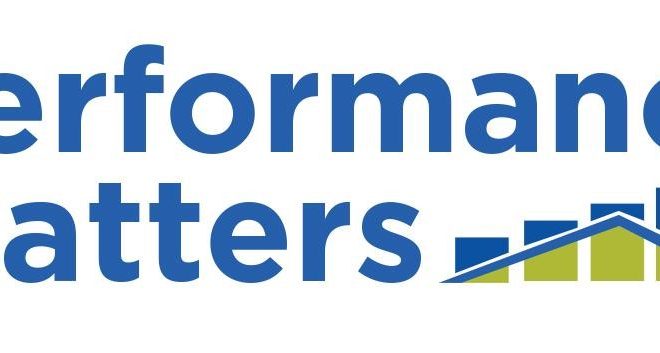Why learn spelling or math if there’s an app for that?

Michael Cowling, CQUniversity Australia and Cris Brack, Australian National University
There is no doubt that digital technologies have disrupted our modes of teaching. The resources and inputs into teaching have changed to incorporate computer-aided approaches such as “flipped” classrooms, mobile-phone-enabled interactions, video capturing of lectures and enhanced mixed realities.
The old “sage on the stage” model of teaching has been pushed into becoming the “guide on the side”, or possibly even further out of the picture – “voice on the video”, perhaps? – by the technology revolution.
And yet, the national scores in NAPLAN and our competitive education ranking against other countries are slipping.
First responders to this comparative crisis are calling for the return of traditional teachers with their “3Rs” of reading, writing and arithmetic, the importation of the world’s elite teachers to upskill our home-grown teachers, or maybe just a return to the pre-disruption days without technology.
Input-output modelling for classrooms
But rather than mourning the disruption of the inputs, perhaps we should be disrupting the outputs from our academic systems.
Schools, as places where children were collected and taught by a teacher, evolved as farming communities developed. Children could be taught en masse, because those farming communities needed numbers of people to do the same activities again and again to maintain the crops or the livestock.
If all the graduates from the school were the same each year, the farms, and subsequently the factories after the industrial revolution, could use them as interchangeable inputs to keep the economy going.
Things have changed though. Certainly, the inputs to schools have improved: from slates to pen and paper, and now to iPads and other tablets. The schools are bigger and mostly air-conditioned and the teachers are professionally trained.
But the outputs may not have fundamentally changed over the decades. Successful schools still aim to produce large numbers of young men and women who can follow instructions; read, write and do arithmetic; and hopefully be ready to enter the existing workplace.
Our new teaching technologies might help these students to achieve all these things even better. But maybe, given all the other disruption caused by our technology, they may not need to do them at all.
Take spelling. Obviously, graduates being able to spell is still one of those essential outputs from our schools. Indeed, one of us (CB) regularly got an “A” for spelling in school and considers himself “successful”, although his “A” was for absent!
As a terrible speller, he literally made himself sick every Friday morning with an asthma attack (“A” is for “asthma”?). So on Fridays he sat fighting for breath while the others in the class spelled the lists of 20 words memorised for that week.
This scenario just wouldn’t happen today. Today, two-year-olds just have fun while learning to spell on their digital devices, catching monkeys or collecting coins while typing out words and being rewarded with exciting sounds and stickers.
And even if the monkeys don’t really work for kids, they’ve always got that handy squiggly line in Microsoft Word or the ever-present Google spell checker. Perhaps spelling isn’t even that important for students today.
Don’t get us wrong, though. In our pre-technology days, we worked hard at spelling, and parents and teachers were hard-working hands-on people too, drilling regularly and using both carrots and sticks. There was nothing wrong with that then.
But, in today’s world, is a non-spelling-enabled student really a failed output from the school system? No, because digital tools are available that reduce the importance of spelling to something schools don’t need to focus on.
What about reading? There’s an app for that. Seriously. You can point your smartphone at a sign, some text or a book and your device will read it aloud for you, complete with definitions if you want.
Auto translations from hundreds of languages are available if you ask. Modern students can also usually get close enough to a word for the predictive text to list a few relevant options to click and/or check with the online thesaurus to ensure the right one.
Even when a student cannot get that close, they can just ask Siri to define “sigh-kology”, resulting in “Define psychology: the scientific study of the human mind and its functions, especially those affecting behaviour in a given context…”. Add a quick bit of copying and pasting and there you are: definition memorisation skills unnecessary.
Similarly, mathematics and science, history and geography apps abound. If it is data-based, then there is likely an app that can extract it. Just think of all that time and all those panic episodes that could have been avoided in the attempt to produce a standardised school output. In today’s world, isn’t it easier to just ask “is there an app for that?” and focus instead on different skills?
21st-century graduates for a 21st-century society
So, the question is: why does NAPLAN still score primary school children on their memorisation of spelling, their reading, ability to recall names of long rivers, or even shortcuts to integrate a mathematical function, in the absence of any technology more advanced than a pen?
Do we need that sort of “output” from our schools anymore? If there is a known answer to a question, then graduates who are trained to search the web should find it (and quality-assure themselves of the value of both the question and the answer).
If there is no known answer, how does the school mark the student anyway? Possibly by the student’s evaluation of the quality of the question?
But, a traditionalist might ask, what if the technology fails? Well, frankly, if our computer networks collapse badly enough that the above technology becomes permanently unavailable, then we don’t think anyone needs to worry about NAPLAN scores.
Our commercial, retail and social systems are becoming so reliant on these digital technologies that society is simply assuming they must be there to build on. Wi-Fi and cheap internet devices may soon become a basic right for all. Free Wi-Fi is already commonly available over entire city areas and many schools provide or require students to have a smart device.
So what sort of graduates do we need for the future? We don’t need large numbers who can all do the same thing adequately. The farms and factories now need only a relatively small number of people to supervise the machines.
We also don’t need large numbers of humans to follow instructions well. Even present-day robots are good at following instructions meticulously.
What we need instead are graduates who are good at one thing or passionate about one thing.
Basic economics suggests that even if you are good at several things, it is best to focus on your best even if your best is not as good as someone else’s second best. If a student is passionate about history, why force them into remedial mathematics classes so they can define an exponent?
Graduating classes, with each individual having a passion or just one thing they are good at, supported by technology that allows them to communicate and access the vast historical wealth of human knowledge, may be all we need from our schools. A massive diversity of passionate individuals, supported by the technology, cannot help but create new services and new opportunities that will not be subject to automation or replacement by robots.
![]() As a society, we don’t need thousands of pure mathematicians or thousands of historians. Just a few passionate ones may do for the country. But we may need thousands of new options and opportunities for the future generations whose old jobs and services have been disrupted by the digital world. That is what we need from our schools.
As a society, we don’t need thousands of pure mathematicians or thousands of historians. Just a few passionate ones may do for the country. But we may need thousands of new options and opportunities for the future generations whose old jobs and services have been disrupted by the digital world. That is what we need from our schools.
Michael Cowling, Senior Lecturer in Educational Technology, CQUniversity Australia and Cris Brack, Assoc Professor Forest measurement & management, Australian National University
This article was originally published on The Conversation. Read the original article.






